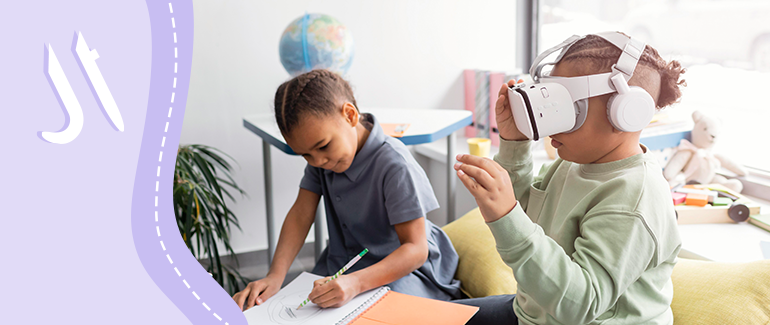Traditional classroom settings have long been the cornerstone of education. However, in recent years, there has been a growing recognition of the importance of experiential learning for children. Experiential learning is an approach that emphasizes hands-on experiences, active participation, and real-world application of knowledge. In this blog post, we will explore the benefits of experiential learning for kids and how it nurtures their knowledge and skills through direct experience.
Enhances Active Engagement:
Experiential learning actively engages children in the learning process. Instead of passively receiving information, they become active participants, making observations, asking questions, and experimenting with concepts. By engaging their senses and interacting with the subject matter, children develop a deeper understanding of the topic. Whether it’s a science experiment, a field trip, or a simulation activity, experiential learning keeps children interested and invested in their education.
Encourages Critical Thinking:
Experiential learning fosters critical thinking skills in children. When faced with real-life challenges or hands-on activities, children are encouraged to analyze, evaluate, and problem-solve. They learn to think independently, make decisions, and consider alternative perspectives. This process of inquiry and reflection helps develop their cognitive abilities and equips them with valuable skills that go beyond rote memorization.
Promotes Collaboration and Communication:
Experiential learning often involves collaborative activities, which promote teamwork and communication skills. Children learn to work together, share ideas, negotiate, and resolve conflicts. They develop effective communication skills by expressing their thoughts and listening to others. Such collaborative experiences prepare children for the future, where teamwork and effective communication are essential in various personal and professional settings.
Increases Retention and Application of Knowledge:
When children learn through direct experience, the knowledge gained tends to stick with them for a longer time. Experiential learning provides a context for children to apply what they have learned in real-life situations, making the information more relevant and memorable. Whether it’s conducting a science experiment, visiting a historical site, or engaging in a cultural activity, children can connect theory to practice, deepening their understanding and retention of the subject matter.
Develops Emotional and Social Skills:
Experiential learning supports the holistic development of children, including their emotional and social skills. By engaging in hands-on activities, children experience a range of emotions such as excitement, curiosity, and even occasional frustration. They learn to manage their emotions, persevere through challenges, and develop resilience. Furthermore, collaborative experiences foster empathy, respect for diversity, and an appreciation for teamwork, enhancing their social skills and emotional intelligence.
Conclusion:
Experiential learning offers a multitude of benefits for children, far beyond what can be achieved through traditional classroom instruction alone. By actively engaging in hands-on experiences, children develop critical thinking skills, enhance their ability to communicate and collaborate, retain knowledge more effectively, and cultivate emotional and social intelligence. As educators and parents, it is crucial to incorporate experiential learning opportunities into children’s education to create a well-rounded learning experience that prepares them for success in the dynamic world of tomorrow. Let us embrace experiential learning as a powerful tool to nurture our children’s knowledge, skills, and love for lifelong learning.

